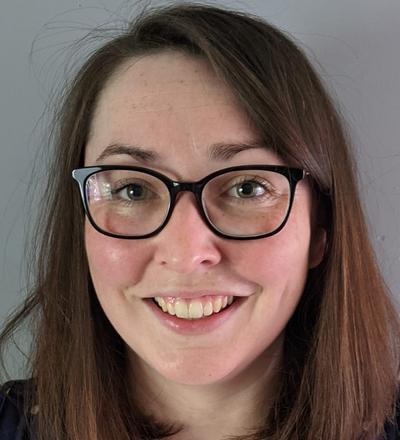Dr Josephine McCullagh; Clinical Scientist in Transfusion Science
Transfusion medicine requires constantly adapting to new patient needs, understanding the challenges that come with rare blood types and collaborating with multidisciplinary teams to support optimum patient outcomes.

Can you tell us what transfusion science is?
Transfusion science is a critical branch of healthcare science focused on the study of blood and blood components, ensuring that patients receive safe and effective transfusions when needed. The field covers everything from the collection and preparation of donor blood components to compatibility testing, monitoring transfusion reactions, and managing complex transfusion needs for patients with conditions like blood disorders, cancers, and trauma injuries. Transfusion is essential to emergency medicine, surgery, obstetrics, and many other medical specialties, providing life-saving support for patients.
Can you tell us about your average working day?
Each day can vary significantly depending on the clinical demand and whether I am the on-call consultant for either the red cell immunohaematology (RCI) rota or the patient facing rota. My days typically involve reviewing and discussing complex patient cases in a multidisciplinary team (MDT) meeting and coordinating transfusion management plans. There are often meetings regarding ongoing projects, quality improvements, or new protocols to enhance the service. My schedule also includes time for teaching and mentoring staff, alongside research discussions to keep practices evidence-based and innovative.
What kind of work does your job involve?
As a Consultant Clinical Scientist in transfusion medicine in a 50/50 post between NHS Blood and Transplant and a large Teaching Hospital, my role is unique and diverse but can be broken down into five main areas:
Direct Clinical Care: A large part of my work involves direct clinical input, where I support clinicians in making safe and effective transfusion decisions, especially for patients with complex needs. This includes managing compatibility challenges in patients with rare or multiple antibodies where provision of blood components is challenging, advising on the management of transfusion reactions, where appropriate, providing advice and support on alternatives to transfusion and sometimes being on-call to provide urgent transfusion guidance.
Service Development: I work continuously with the wider transfusion teams (laboratory scientists, transfusion practitioners etc) to improve and innovate within our transfusion service. This means implementing new technologies, refining procedures, and ensuring the highest quality and safety standards. Service development includes reviewing current practices, introducing evidence-based protocols, and working with other healthcare professionals to keep the service responsive to clinical needs.
Research: Along with my colleagues I am involved in developing and supporting translational research in transfusion that will directly impact the outcome of patients. This includes designing and conducting research studies across different aspects of patient blood management that address pressing questions such as the safety and efficacy of blood components in different clinical settings and the impact of digital technologies on transfusion services and the management of patient care.
Education/Mentoring: Educating and mentoring is a fundamental aspect of my role. I work with doctors, nurses, healthcare scientists, and students to develop their skills in transfusion, instilling best practices and fostering an environment where learning is continuous. This not only supports the future of the specialty but also strengthens our team.
Governance: Ensuring that the service meets regulatory and quality standards is essential. I oversee adherence to guidelines, audit processes and review transfusion related incidents to ensure safe practice and that key lessons for improvement and learning are shared throughout the team.
Each of these areas contributes to a well-rounded role where patient safety, evidence-based practice and continuous improvement are at the forefront.
Why did you choose this specialty?
I chose transfusion medicine because of its unique combination of scientific practice and direct impact on patient care. The specialty sits at the intersection of laboratory science and clinical practice, which appealed to my interest in both. Each day offers an opportunity to solve complex problems that directly contribute to patient outcomes, which is incredibly fulfilling.
What do you enjoy most about your chosen specialty?
I enjoy the diversity and challenge that comes with each case. Transfusion medicine requires constantly adapting to new patient needs, understanding the challenges that come with rare blood types and collaborating with multidisciplinary teams to support optimum patient outcomes. There is always something new to learn or a new problem to solve, which keeps the field dynamic and exciting.
What do you find most rewarding about the role?
The most rewarding part of my role is knowing that the work I do directly saves lives and improves patient outcomes. Whether it’s supporting a patient through a complex surgery or helping manage a chronic condition, blood transfusions play an essential role in many areas of medicine. It’s incredibly fulfilling to be part of this wider team.
What advice would you give to students looking to enter your field?
If you’re interested in a career in transfusion, my advice would be to build a strong foundation in both biological and laboratory sciences. Seek out opportunities to get involved in any transfusion events organised through the different professional bodies. Attend webinars and reach out to other professionals in the field to gain an understanding of their role and if there are any opportunities for work experience placements to gain practical experience.
